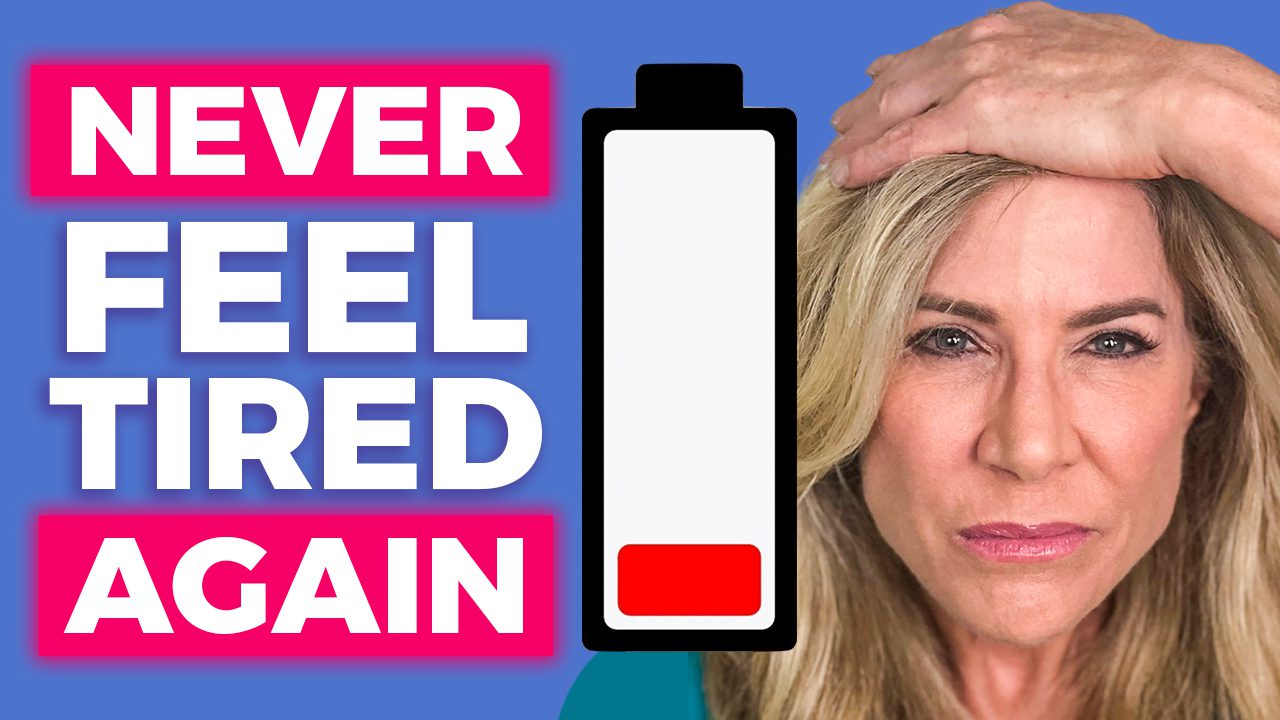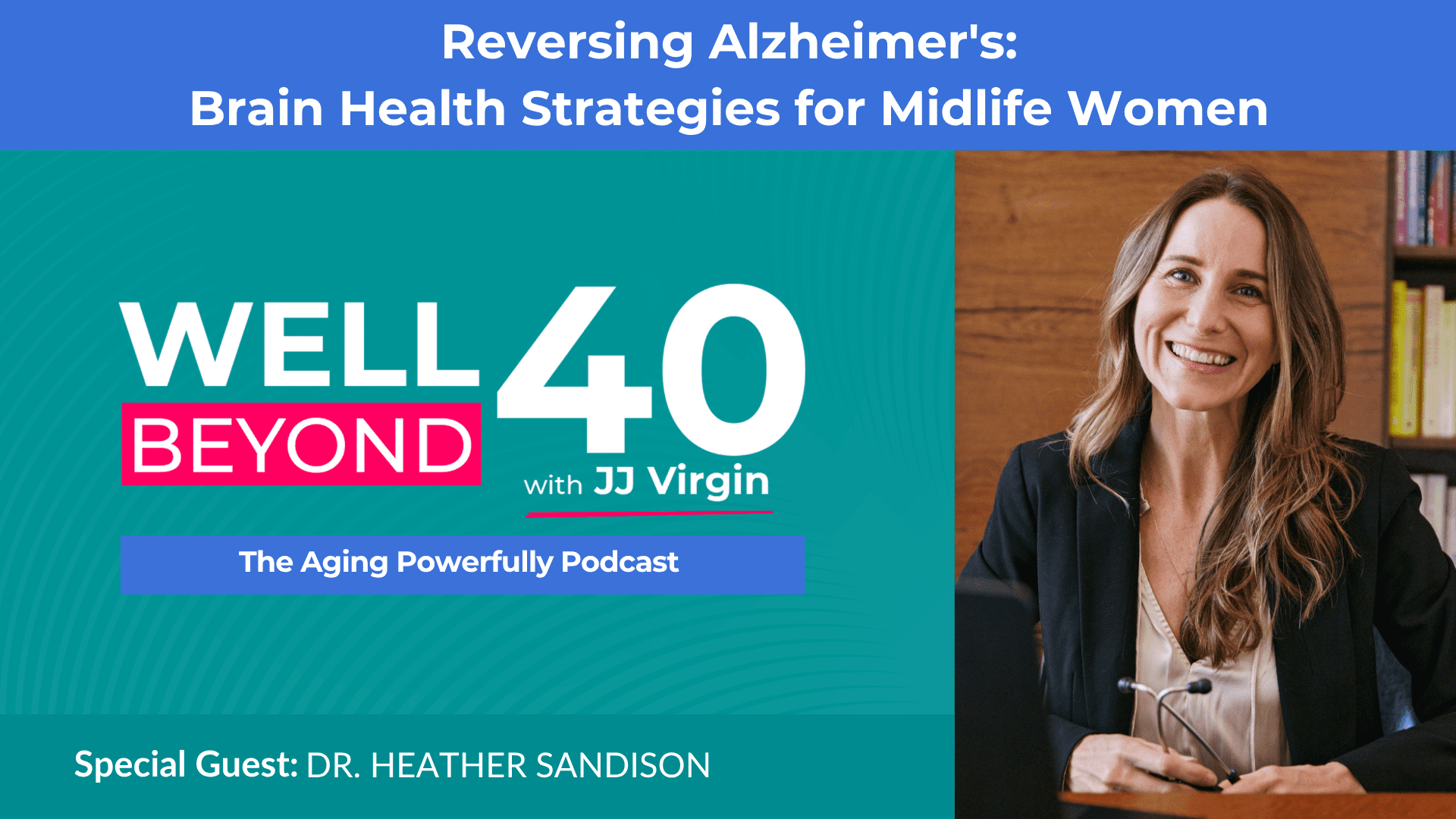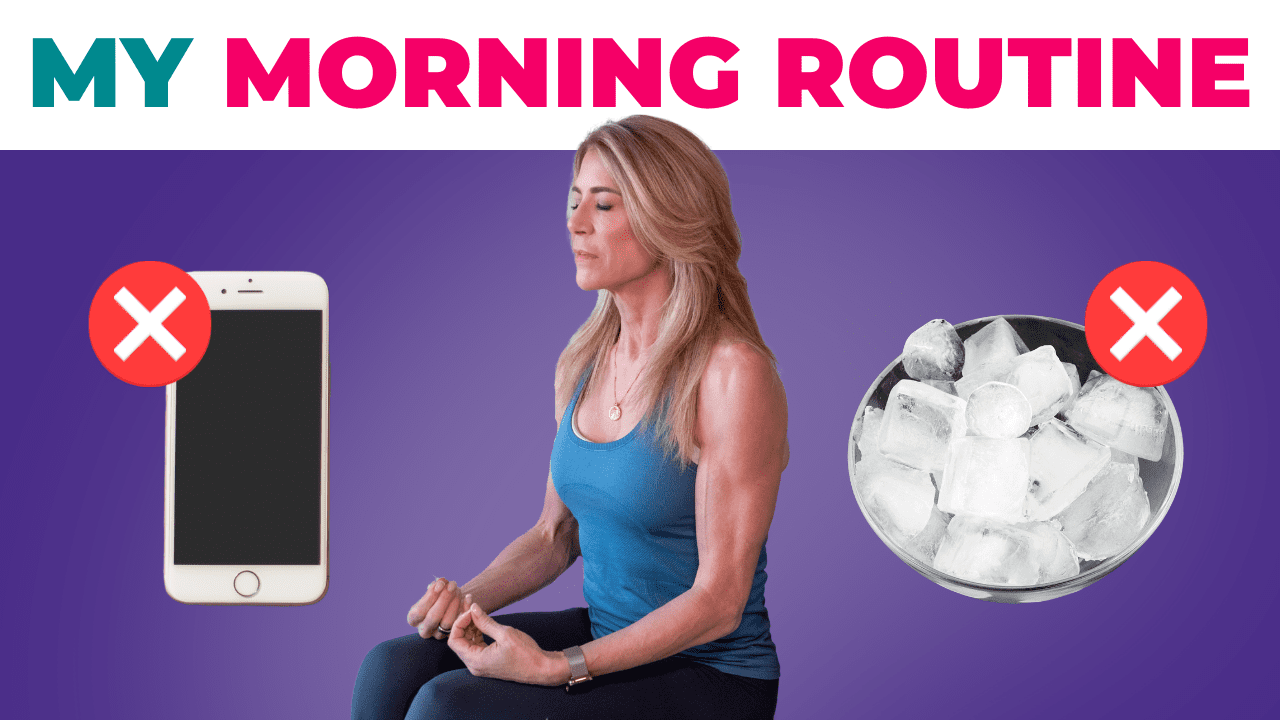3 Things That Interfere With Quality Sleep
Do you still feel sluggish even after having a full night’s rest? In this episode, I’ll explain some of the possible reasons why you’re having difficulty getting your much-needed sleep. Could it be that cup of coffee, despite its health advantages? What role does your diet play? Ultimately, having a good quality sleep is essential to your health, and if you’re like most folks, you’re not providing your body the adequate time it needs. I talk about proper sleep hygiene tips and what I personally do in my nighttime routine. Plus, I share foods that help you sleep, along with supplements that promote good-quality rest so you wake up feeling energetic.
Timestamps
00:00:38 – Tips for better sleep: coffee timing, avoid late-night eating, get enough sleep
00:01:40 – Caffeine blocks adenosine by attaching to the same receptors
00:03:27 – Sleep is for rest and repair processes
00:05:00 – Insulin has its own circadian rhythm. It should be highest during the day and lowest at night
00:06:38 – Turn off the blue lights to prepare for a good nights sleep
00:08:00 – Melatonin is key for a good circadian rhythm
00:09:20 – Theanine helps promote GABA release, inositol for sleeping better and feeling better
00:10:48 – Watch my next video on how sleep could be the missing link to losing weight and feeling better
Mentioned in this episode:
Find out if you are a fast or slow caffeine metabolizer with a genetic test like 23 and me
I use the Oura Ring to track my sleep
The Theia Health continuous glucose monitor is great for tracking blood sugar levels
Try a guided meditation with Dr. Joe Dispenza
Ease the transition to sleep with red light bulbs at night
Use my code JJ10 to get 10% off glasses that block out blue light
I use a Sunlighten Sauna before bed to increase my sleep quality
Take Ten Stress Support with GABA
I take Sleep Candy™ (with melatonin and other sleep-supporting nutrients) nightly for better sleep
I also use Magnesium Body Calm every night to help me unwind and drift into sleep
ATHE_Transcript_Ep 524_The Hidden Reasons You Wake Up Tired Every Day
JJ Virgin: [00:00:00] Hey, this is JJ Virgin. Thanks so much for joining me. This is Ask the Health Expert. In each episode, I put the Power of Health in your hands and share ways to get healthy, lose weight, heal your gut detox, and lots more. So you can look and feel better fast if you’d rather watch the video. Hey, I did put on my makeup and do my hair, so check it out on my YouTube channel.
Not a morning person. If you’re still waking up tired, even after a full eight hours in bed, listen up to hear the things that could be interfering with your ability to have good quality sleep. You wanna stay up to date with evidence-based tips for your health, simplified into actionable steps. Make sure to subscribe to my channel and turn on notifications so you [00:01:00] never miss an.
Now number one, you are not compatible with your coffee, huh? So coffee is some amazing health benefits. However, it can also impact your sleep if you’re drinking it later than you should, and this varies on whether you’re a fast or slow caffeine metabolizer. So how do you know which one you are? So you can find this out by taking a genetic test like 23.
But you’ll likely know if you’re a slow metabolizer, if you’re feeling jittery or wired long after you’ve finished your last cup. Now, before we get into that, let me explain how caffeine impacts energy and prevents drowsiness, which can be awesome at the right times, but really bad at the wrong times. So we have a compound in our body called Adenosine.
Now it can act as a neurotransmitter, helping to regulate nerve signal transmission, dilate blood vessels, and promote restful. Caffeine blocks adenosine by attaching to the same [00:02:00] receptors that adenosine would attach to. Now, this is great in the morning because elevated adenosine levels make you feel tired and drowsy, but it isn’t great at night when you want those adenosine levels high to help you fall asleep.
Now, you may be thinking, but I only drink coffee in the morning, so I’m good. And while it’s true that caffeine has hits peak levels within 30 to 60 minutes after consuming it, . It’s also true that as a half-life of three to seven hours, I mean, it can take 10 to 12 hours for it to leave your body. How quickly this happens depends on if you are again, a fast or slow metabolizer, fast.
Caffeine metabolizers take between four to six hours to lower caffeine levels by half. And that’s the half-life of caffeine, right? Slow caffeine metabolizers take between eight to 10 hours to drop caffeine levels by half. Those that don’t have either of that, they’re about four to eight hours to drop caffeine levels by half.
If you’re not a fast or you’re not slow. So you can see that if you’re a slow caffeine metabolizer, you gotta be super [00:03:00] mindful about when you drink your coffee, and also make sure that other things with caffeine aren’t getting into your diet later in the day, like chocolate. I wanna make sure that you don’t do a double whammy and have your coffee with a big side of sugar that can just amplify the fatigue issues by wreaking havoc on your blood sugar stability.
All right, next one, you’re eating too late at night. So digestion disrupts sleep quality. Sleep is for rest and repair processes. Digestive system. The digestive system at night is gonna slow down during sleep so that you can rest and. Right. This is part of when melatonin comes out, but starts to shut the pancreas down.
You’re gonna use your stored glucose from your day’s meals to fuel that process. Now, if you eat too late at night, you haven’t given your body enough time to fully digest your meal before bed, and the glucose is still in your blood rather than being stored in your cells. So the rest and repair is not gonna happen as effectively as you want it to be when you eat and digest carbohydrates.
And, To a [00:04:00] lesser degree protein. It turns into blood glucose, right? It turns into sugar in the bloodstream. Then your pancreas secretes insulin to move that glucose into your cells. The problem is insulin poses melatonin, melatonin’s the sleep hormone that comes up at night. That helps you get. Good quality.
Sleeping right melatonin lowers insulin secretion at night. So that means that if you’re eating carbs, a lot of carbs at night, you’re left with higher levels of glucose in the blood. Now, if you’ve eaten too late, which is no good for your sleep, you’re really gonna have trouble there, and you’ll see it in the morning.
You’ll have this elevated blood sugar in the morning as well as a poor night’s sleep. There was a 2014 study. Current obesity reports and what it showed was that nighttime eating impaired, the circadian rhythm, increased body weight, installed weight loss, and what they found is that nighttime eaters skipped breakfasts tend to eat higher caloric intake from snacks.
Also what you’re eating matters, and people tend to snack on higher carb stuff at night, like other hormones. [00:05:00] Insulin has its own circadian rhythm. It should be highest during the day and lowest at night. Ideally, insulin’s decreasing at night, melatonin’s increasing, and melatonin’s basically helping put the pancreas to sleep.
But again, if you’re eating foods late at night that are increasing insulin levels, now we got a problem. , right? Insulin becomes dysregulated. Melatonin becomes dysregulated, and you’re putting yourself at risk for type two diabetes. I like to eat about, I like to be done eating by seven at the latest, but six even better.
But I try every night to be done eating by seven, go to bed and fall asleep around 10. Well, sometimes things just get out of control, and I remember, I don’t remember how it happened. We’re eating dinner at 8 30, 9 o’clock. And I remember getting up the next morning. I knew I’d had a crappy night’s sleep, you know.
But I get up the next morning and my aura ring on my phone. App says, looks like you ate late last night. I’m like, what? Are you spying on me? How did you know? Literally because of what it does. Like my fasting blood sugar. I was wearing a continuous glucose monitor. It was elevated, my sleep was impacted.
So this [00:06:00] makes a big Difference. Next one as you just don’t sleep long enough. Now here’s the thing, we need seven to nine hours of quality uninterrupted sleep. So that means that you have to make enough time to be able to get that sleep. Because here’s the thing, let’s say you say, I want eight hours of quality sleep, so I’m gonna go to bed at 10 and get up at six.
But the thing is you don’t like slide into bed and. Crash, right? And then boop, wake up at six. So you’re gonna take a little time to fall asleep, so you have to account for that part there, right? So the first thing that we want to do is we want to kind of reverse engineer that and an hour or more before bed, turn off the electronics.
And this is super duper important because that blue light’s super stimulating and we’ll keep you up. Take the blue lights down. In fact, on your. On your phone, put that nighttime setting on, so the lights will shift on those. But ideally you’re not using them. You’re wearing the blue blocker glasses. You can even put red lights in your bedroom lights.
Looks very romantic too. You’re dimming all the lights. We are now turning the air down. Oh my gosh, I hate this, but we’re you [00:07:00] really wanna sleep somewhere in the 65 to 68 degrees, so make the air cooler. Do. Bath, do a sauna. Chamomile tea can be a great thing here too. We’re doing a little evening meditation.
We’ve got a great Dr. Joe evening meditation that will use something that’s gonna help start to give you that regular routine that your body goes, oh, I know what we’re doing now. We are preparing for sleep. Make sure you’re avoiding those things that really mess up sleep, right? Eating too late, stimulating things like, you know, bright lights, lots of.
Something stressful, like reading emails at night that never, you’re never reading that email at night that went, you won the lottery. No, you’re reading the problem ones that you can’t do anything about till the next day, except loose sleepover. Alcohol, of course, as we know, helps you fall asleep and then bam wakes you up between two and three because of the hypo hypoglycemic impact.
Getting a really good meal with some carbs in it three to four hours before bed, but not eating right before bed. You wanna make sure that you are setting. Yourself for success. You’ve got things dimming down cuz your body’s [00:08:00] then gonna produce that melatonin in response to it. And really, when we look at really working your circadian rhythm, melatonin’s key for regulating the timing of your circadian rhythm, your 24 hour internal clock, and getting you ready for sleep.
The other thing you wanna make sure of too here is that you’ve got a consistent sleep. So that you’re going to sleep around the same time each day, but more importantly, you’re waking up around the same time each day. So again, think about things that you can do to help your body wind down to tell your body, Hey, it’s time to go to sleep.
And for me, my night routine again is making sure we try to do a sauna. So I do a sauna or a hot bath because your body then after that’s gonna cool you. We have a weighted blanket on our bed. We’ve taken the lights down. We take our sleep candy and magnesium body calm every single night too. So I’m doing all of these things to start to take my body down so that I don’t get my circadian rhythm out of whack.
Because one of the big things that can mess you up is getting your circadian rhythm out of whack, and. . Now there’s also nutrients that can [00:09:00] help. And I mentioned in my routine, I take magnesium. Magnesium’s really important for supporting energy production. Like there’s 300, 400 different processes that magnesium does.
But the big thing is deficiencies can cause fatigue, but not in a good way. It’s that tired and wired thing. So magnesium can be really great at night. It’s really calming, and I find most people are deficient in magnesium. So I would try like two of my magnesium body calm. Another thing that’s. Theanine, which mimics gaba, it helps promote GABA release.
And GABA is the calming neurotransmitter that helps you fall asleep faster. And of course, melatonin, melatonin’s gonna help you get into a good circadian rhythm. It’s a great hormone that that goes down as we age. That’s good for anti-aging as well. . And then Inositol, which is a B vitamin derivative that can promote calm, help with sleep, help with reducing anxiety.
These are all in my sleep candy. That’s one that I take every night as well. Now these are all the things that can happen that can disrupt your sleep. And I talked a little bit [00:10:00] about some of my favorite things that you can do for sleep hygiene, but I have more than that because, More things that poor sleep disrupts.
So we really, really wanna make sure that we fix this. So you wanna watch my video on how to sleep better next. And you’re gonna learn how sleep could be the missing link to losing weight and feeling better. And the ideal amount of weight you really need to be able to burn fat. Why sleep in is super important.
By exercise can help here, but the timing matters. And a simple hack to curb before bed, hunger, pangs, and much more than that cuz when you fix your. You’re gonna be able to. Lose the fat, stop the weight, regain, and be a great fat burner, and who doesn’t want that? So be sure to check out the next video
for more info on this and other health topics I cover or to rate and review, find me on Instagram, Facebook, and my website jjvirgin.com. And don’t forget to subscribe to my show so you [00:11:00] won’t miss a single episode. Go to subscribetojj.com. Thanks again for being with me this week.

 Subscribe to our show
Subscribe to our show 




